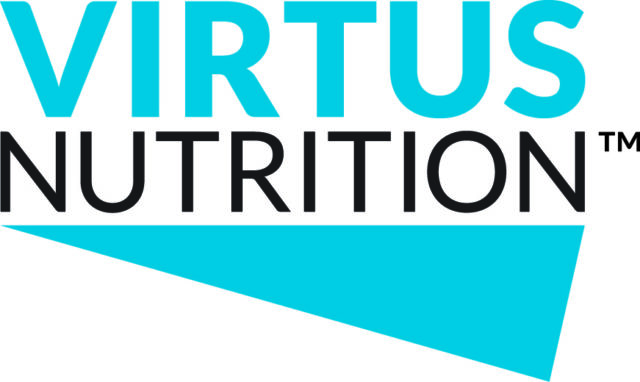“What do you want to be when you grow up?” I was asked it; you were asked it; almost every grade school teacher in America has asked it.
For some of you, “a farmer” might have been the resounding response, but for others it may have included anything but. Regardless of your young aspirations, here you are 20, 30, 40 years later in one of the toughest, yet most important jobs in America.
Do you really think “farmer” would have been your answer if your eight-year-old brain knew you wouldn’t get paid vacation, that you would work more hours for less or in some years you might barely break even?
Probably not – so why do you do it?
I recently stumbled across a video meme floating the internet; maybe you’ve seen it? Whether you have or not, it’s something everyone can relate to, and it’s something the agricultural industry witnessed in 2016 – and let’s face it; it won’t be the only time.
The clip was taken from a 1990s comedy film, Black Sheep, starring Chris Farley. It starts out with Farley tumbling down a hill – rolling and crashing viciously until coming to a ledge that brings him to an abrupt halt.
Relieved and catching his breath, Farley stands up chuckling until the ledge gives way and sends his larger-than-average body toppling once more.
This vicious stop-and-go pattern continues until Farley reaches the bottom of the hill – making for great entertainment. But the reason I bring this poorly rated movie to your attention was because of the words added to the clip: “When people ask me how 2016 has been so far ...”
Is that not the truth?
I mean, 2016 wasn’t all doom and gloom, but there were some pretty rough tumbles from this past year. Like how cash receipts from cattle and calves were down 15 percent from 2015.
Or how dairy cash receipts dropped 5 percent after a sharp 28 percent decline in 2015 (not bad but not good either) and, not to mention the plentiful supply of average-quality hay that kept prices at a steady low.
With those statistics in mind, I asked farmers, ranchers and dairymen just that: Why do you do what you do? Some said they “love the challenges” and, “It was all I ever wanted to do.” Others gave me more of a tongue-in-cheek response like: “Who else would hire me?” or my favorite, “I was born on the farm and no one ever told me I could leave.”
Although some of those may be true, it was these heartfelt responses that really put working in the agricultural industry into perspective:
“I farm because I love it. I love the long hours, working every day and the challenges we face. If farming were easy, I wouldn’t be doing it. I farm to help others learn from my mistakes and successes to better agriculture as a whole; now and in the future.”
“I feel a connection to this land and community that I cannot put into words. Why do I farm? Because it’s what I feel called to do.”
“Every year I get to see if I can improve on what we did the year before. That is a challenge I like.”
“I farm because the good Lord allows me to. I feel very privileged to be one of the 1 percent that grows food for the world. I would rather farm than anything else I can think of to make a living.”
Farming isn’t easy; I don’t have to tell you that. It will rain on your hay, your cows will get out, the market won’t always play nice and that quarter-of-a-million dollar tractor won’t always run like it’s supposed to – if at all.
But if you can remember why you chose this career in the first place, those days will be a lot easier. I can promise you that. ![]()

-
Cassidy Woolsey
- Editor
- Progressive Forage
- Email Cassidy Woolsey
“What do you want to be when you grow up?” I was asked it; you were asked it; almost every grade school teacher in America has asked it.
For some of you, “a farmer” might have been the resounding response, but for others it may have included anything but. Regardless of your young aspirations, here you are 20, 30, 40 years later in one of the toughest, yet most important jobs in America.
Do you really think “farmer” would have been your answer if your eight-year-old brain knew you wouldn’t get paid vacation, that you would work more hours for less or in some years you might barely break even?
Probably not – so why do you do it?
I recently stumbled across a video meme floating the internet; maybe you’ve seen it? Whether you have or not, it’s something everyone can relate to, and it’s something the agricultural industry witnessed in 2016 – and let’s face it; it won’t be the only time.
The clip was taken from a 1990s comedy film, Black Sheep, starring Chris Farley. It starts out with Farley tumbling down a hill – rolling and crashing viciously until coming to a ledge that brings him to an abrupt halt.
Relieved and catching his breath, Farley stands up chuckling until the ledge gives way and sends his larger-than-average body toppling once more.
This vicious stop-and-go pattern continues until Farley reaches the bottom of the hill – making for great entertainment. But the reason I bring this poorly rated movie to your attention was because of the words added to the clip: “When people ask me how 2016 has been so far ...”
Is that not the truth?
I mean, 2016 wasn’t all doom and gloom, but there were some pretty rough tumbles from this past year. Like how cash receipts from cattle and calves were down 15 percent from 2015.
Or how dairy cash receipts dropped 5 percent after a sharp 28 percent decline in 2015 (not bad but not good either) and, not to mention the plentiful supply of average-quality hay that kept prices at a steady low.
With those statistics in mind, I asked farmers, ranchers and dairymen just that: Why do you do what you do? Some said they “love the challenges” and, “It was all I ever wanted to do.” Others gave me more of a tongue-in-cheek response like: “Who else would hire me?” or my favorite, “I was born on the farm and no one ever told me I could leave.”
Although some of those may be true, it was these heartfelt responses that really put working in the agricultural industry into perspective:
“I farm because I love it. I love the long hours, working every day and the challenges we face. If farming were easy, I wouldn’t be doing it. I farm to help others learn from my mistakes and successes to better agriculture as a whole; now and in the future.”
“I feel a connection to this land and community that I cannot put into words. Why do I farm? Because it’s what I feel called to do.”
“Every year I get to see if I can improve on what we did the year before. That is a challenge I like.”
“I farm because the good Lord allows me to. I feel very privileged to be one of the 1 percent that grows food for the world. I would rather farm than anything else I can think of to make a living.”
Farming isn’t easy; I don’t have to tell you that. It will rain on your hay, your cows will get out, the market won’t always play nice and that quarter-of-a-million dollar tractor won’t always run like it’s supposed to – if at all.
But if you can remember why you chose this career in the first place, those days will be a lot easier. I can promise you that. ![]()

-
Cassidy Woolsey
- Editor
- Progressive Forage
- Email Cassidy Woolsey









